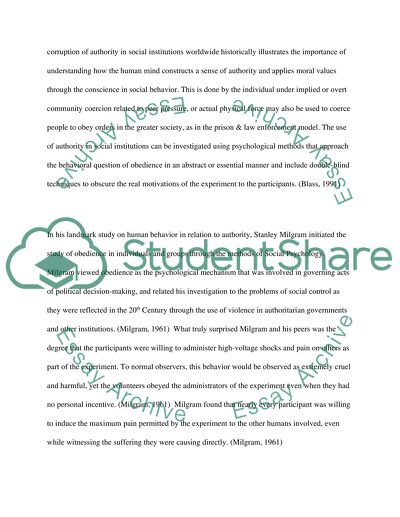Cite this document
(“What has social psychology taught us about obedience Essay”, n.d.)
Retrieved from https://studentshare.org/psychology/1415715-what-has-social-psychology-taught-us-about-obedience
Retrieved from https://studentshare.org/psychology/1415715-what-has-social-psychology-taught-us-about-obedience
(What Has Social Psychology Taught Us about Obedience Essay)
https://studentshare.org/psychology/1415715-what-has-social-psychology-taught-us-about-obedience.
https://studentshare.org/psychology/1415715-what-has-social-psychology-taught-us-about-obedience.
“What Has Social Psychology Taught Us about Obedience Essay”, n.d. https://studentshare.org/psychology/1415715-what-has-social-psychology-taught-us-about-obedience.


